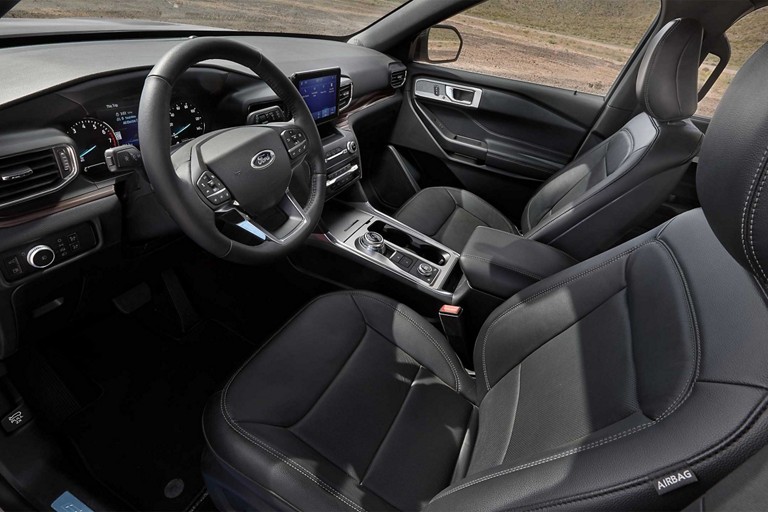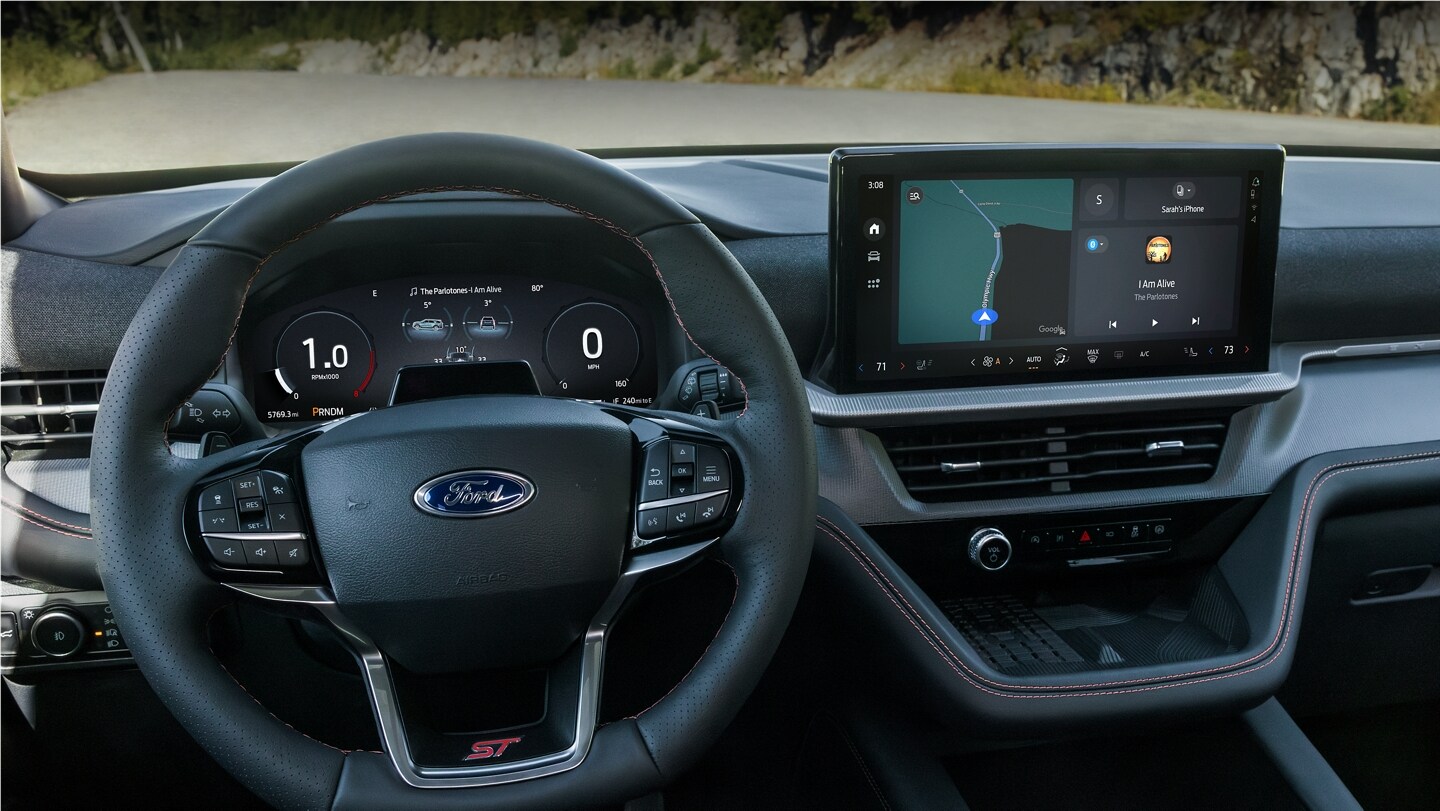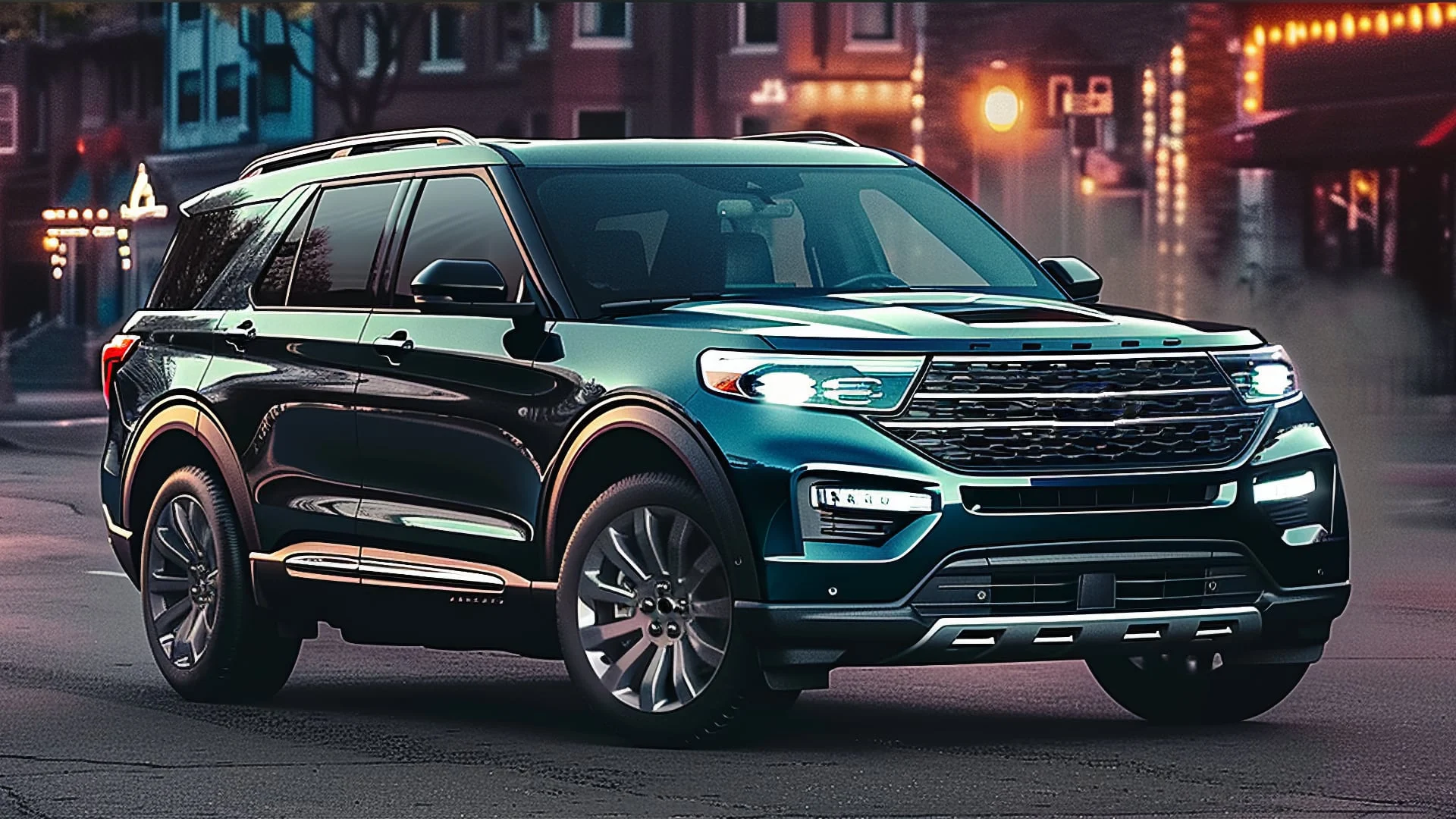Ford Explorer years to avoid are 2002, 2003 and 2004. The Ford Explorer had issues with transmission during these years.
Many consumers have been curious about the Ford Explorer’s reliability and the years to avoid. Researching the best and worst years of the Ford Explorer can help consumers in making an informed decision before purchasing a vehicle. We will explore the Ford Explorer’s worst years, what problems they faced, and which years are the most reliable.
We will also cover which is the best engine for the Ford Explorer and the best years to own one.
Ford Explorer Models To Steer Clear Of
If you’re in the market for a used Ford Explorer, some models to avoid include the 2002, 2003, and 2004 years due to transmission issues. It’s also recommended to stay away from the 2016 and 2017 models which suffered from several electrical and engine problems.
Ford Explorer Models to Steer Clear of
When it comes to buying a used Ford Explorer, it’s important to be cautious. While the Explorer has been a popular SUV for many years, not all model years are created equal. In this article, we’ll take a look at the Ford Explorer models to steer clear of.
First Generation
The first generation of Ford Explorers, which were produced from 1991 to 1994, are known for having a number of issues. These early models had a high rate of engine failures, which could be costly to repair. In addition, some first-generation Explorers experienced transmission problems, including slipping and failing transmissions. If you’re considering a used Explorer, it’s generally a good idea to avoid ones from the first generation.
Second Generation
The second generation of Ford Explorers, which were produced from 1995 to 2001, had a number of issues as well. One of the most common problems was with the rear liftgate. This component was prone to rust and corrosion, which could cause it to fail completely. Some second-generation Explorers also had issues with the transmission, as well as the suspension system. While these models are generally more reliable than the first generation, they’re still not the best choice if you’re looking for a trouble-free SUV.
Third Generation
The third generation of Ford Explorers, which were produced from 2002 to 2005, had their share of problems as well. Some of the most common issues with these models include failing transmissions, faulty electronic throttle bodies, and rear-end differential failures. While these models are generally more reliable than the first and second generations, they’re still not the best choice if you’re looking for a trouble-free SUV.
Fourth Generation
The fourth generation of Ford Explorers, which were produced from 2006 to 2010, are generally considered to be the most reliable. However, some models did experience issues with the transmission and the powertrain control module. If you’re considering a fourth-generation Explorer, look for one with low miles and a good service history.
Fifth Generation
The fifth generation of Ford Explorers, which were produced from 2011 to 2019, are generally considered to be reliable as well. However, some models did have issues with the transmission and the engine. In addition, some fifth-generation Explorers experienced problems with the exhaust gas recirculation system. If you’re considering a fifth-generation Explorer, be sure to have it inspected by a mechanic before you buy.
In conclusion, if you’re in the market for a used Ford Explorer, it’s important to be aware of the model years to avoid. While the Explorer is generally a reliable SUV, not all model years are created equal. By steering clear of these problematic model years, you can save yourself a lot of hassle and expense down the road.

Credit: www.fixdapp.com
Common Issues With The Models
If you’re planning to buy a used Ford Explorer, there are a few years to avoid. The 2002 and 2013 models had transmission problems, while the 2011 had issues with the engine. It’s best to do some research beforehand to make an informed decision.
Common Issues with the Models
When looking to buy a used car, it’s important to research the car’s history and any common issues associated with it. The Ford Explorer has gone through many changes throughout its years of production. Some Explorer years are considered to be more reliable than others. It’s important to know the years to avoid, as well as what common issues the different models have had.
Transmission Issues
Several Ford Explorer models have had transmission problems. The 2002 and 2003 models are known for having the most issues. These issues include the transmission slipping, hesitation, and rough shifting. The 2006 model also had transmission problems, with reports of the gears shifting erratically and the transmission failing completely.
Engine Problems
Certain Ford Explorer models also have had engine problems. The 2011 and 2012 models experienced loss of power and engine stalling, which was caused by the fuel injectors. The 2013 to 2015 models had engine issues related to the coolant leaking into the cylinders, which caused misfires and engine failure.
Electrical System Failure
Several Ford Explorer models have experienced electrical system failures. The 2002 and 2003 models had issues with the antilock brake system, which caused the ABS warning light to come on. The 2002 to 2005 models had issues with the power windows, which would stop working or work intermittently.
Suspension and Braking System Problems
The suspension and braking systems on some Ford Explorer models are also problematic. The 2011 to 2017 models had issues with the suspension, with some experiencing a clunking noise while driving or steering. The 2002 and 2003 models had braking system issues, with reports of the brake pedal going all the way to the floor or the brakes failing completely.
In conclusion, it’s important to know the common issues associated with different Ford Explorer models before making a purchase. Some models have had transmission issues, engine problems, electrical system failures, and suspension and braking system problems. By doing your research and knowing what to look for, you can make an informed decision and avoid purchasing a used car with costly issues.
Reliable Used Ford Explorer Models
When considering purchasing a used Ford Explorer model, it is important to be aware of the years to avoid. According to vehicle history and owner surveys, the Ford Explorer years from 2002 to 2006 had various transmission problems and are not as reliable as other years.
It is recommended to research thoroughly or seek expert advice before making a final decision.
Most Reliable Years
When it comes to buying a used Ford Explorer, the year of the vehicle is an essential factor that enshrines the car’s reliability. When thinking of the most reliable years for used Ford Explorer, many automotive experts recommend the 2011, 2012, and 2013 models. The models produced after 2016 are also reliable, as they come with advanced technological features and undergone modern manufacturing techniques that enhance reliability.
Factors Affecting Reliability
Several factors determine the reliability of used Ford Explorers. One notable factor is the vehicle’s mileage, with vehicles with low mileage being more reliable than those with high mileage. The engine type and transmission system also significantly impact a car’s reliability. Gas-powered engines tend to be more reliable and require less maintenance than diesel engines. Similarly, automatic transmission systems tend to be more reliable than manual transmission systems.
Other crucial reliability factors include the vehicle’s maintenance history, the number of previous owners, and the quality of spare parts used in repairs. A properly maintained Ford Explorer with few owners and original spare parts is generally more reliable than a poorly maintained vehicle that has had many owners and substandard parts.
In conclusion, it is always important to do thorough research and inquire about a vehicle’s history and maintenance before making a purchase. By doing this, you can identify the most reliable used Ford Explorer models that will offer value for your money.

Credit: www.ford.com
Tips For Buying Used Ford Explorer
If you are in the market for a used Ford Explorer, it’s important to know which years to avoid. According to consumer reports and owner surveys, some of the worst years for the Ford Explorer include 2002, 2003, 2004, and 2016.
However, the most reliable year for the Ford Explorer is believed to be 2013, so keep that in mind when browsing for options.
If you’re in the market for a used car, the Ford Explorer may be on your list of vehicles to consider. However, some model years have had known issues that you should be aware of. Here are some tips to help you make an informed decision when buying a used Ford Explorer.
Inspecting The Vehicle
Inspecting the vehicle is the first step in buying a used car. You should visually inspect the car both inside and out. Check for any signs of damage or rust. Look for any fluid leaks and check the tires for wear. If possible, check under the hood and look for any visible problems.
Checking The Maintenance History
Ask the seller for the maintenance history of the car, specifically, for the service records. You can also check the oil stickers in the car for information on the last oil change. Check the maintenance records for any major repairs. This will give you an idea of the condition of the car and if it has been well-maintained over the years.
Test-driving The Vehicle
Take the car for a test drive to see how it performs on the road. Check the brakes, steering, and suspension. Listen for any strange noises and feel for any unusual vibrations. Pay attention to the transmission when shifting gears. A test drive is the best way to see if the car is running properly.
Getting The Vehicle History Report
A vehicle history report will provide you with important information about the car, including any accidents, previous owners, and mileage. You can purchase this report online or through the dealership selling the car. This report will help you make an informed decision about whether the car is worth purchasing.
In conclusion, when buying a used Ford Explorer, it’s important to do your research and be aware of any known issues with specific model years. By following these tips for inspecting the car, checking the maintenance history, test-driving the vehicle, and getting the vehicle history report, you’ll be able to make an informed decision and find the best Ford Explorer for your needs.
Expert Opinion On The Ford Explorer Years To Avoid
While the Ford Explorer has been a popular SUV for many years, there are certain years that experts recommend avoiding due to various issues. It’s important to do your research before purchasing a used Ford Explorer to ensure you’re getting a reliable vehicle.
Expert Opinion on the Ford Explorer Years to Avoid
The Ford Explorer is a popular SUV, but not all years are created equal. Some model years have a history of problems that can be costly to repair. That’s why we turned to the experts to find out which Ford Explorer years to avoid.
Ford Explorer Years to Avoid According to Experts
According to experts at CoPilot, Municibid, and Seth Wadley Ford, there are several years of Ford Explorers that are problematic and should be avoided. These include:
– 2002-2003: These model years are prone to transmission issues and can be expensive to fix.
– 2006-2007: Owners of these model years have reported problems with the rear window hinges, which can fail and cause the window to fall out.
– 2011-2012: The National Highway Traffic Safety Administration (NHTSA) issued a recall for these model years due to problems with the steering gear.
Why These Models Are Problematic
The Ford Explorer model years mentioned above have been associated with various issues, such as transmission problems, faulty rear window hinges, and steering gear issues. The transmission problems have been reported in several model years, including the 2002 and 2003 models, and can be costly to repair.
The faulty rear window hinges in the 2006 and 2007 models have caused the rear windows to fall out and can be dangerous if it happens while driving. The NHTSA issued a recall for the 2011 and 2012 models due to problems with the steering gear, which can cause the vehicle to lose control.
In conclusion, if you’re in the market for a used Ford Explorer, it’s important to do your research and avoid the problematic model years. By staying away from the 2002-2003, 2006-2007, and 2011-2012 model years, you can save yourself from expensive repairs and potential safety hazards.

Credit: www.ford.com
Frequently Asked Questions Of Ford Explorer Years To Avoid
What Year Is The Most Reliable Ford Explorer?
The most reliable year for Ford Explorer varies, but generally, the 2011 and 2013 models have fewer complaints compared to other years. However, it’s important to note that reliability can be subjective and can vary depending on maintenance and usage.
What Years Did The Ford Explorer Have Transmission Problems?
The Ford Explorer had transmission problems in several model years. It is difficult to pinpoint specific years, but some of the worst were 2002, 2004, and 2014. It’s best to do thorough research before purchasing a used Explorer.
What Is The Biggest Problem With Ford Explorer?
The biggest problem with Ford Explorer varies based on the year. Some of the earlier models have had issues with transmission and mechanical problems. It’s important to research a specific year before buying.
Is A Ford Explorer A Good Car To Buy?
The Ford Explorer can be a good car to buy, as long as you avoid certain years with transmission problems. It’s important to do your research and choose a reliable year if you’re considering purchasing a used Ford Explorer. Overall, the car’s reliability can vary depending on the year and specific model.
Conclusion
After conducting thorough research on the Ford Explorer, we have found that there are certain years to avoid when purchasing this SUV. While there are good versions out there, there are also some problematic ones that may cause costly headaches in the long run.
It is always important to do your due diligence before buying a used car and researching the specific make and model to ensure that you are making an informed decision. Remember to consider reliability, longevity, and overall value when selecting a car.

